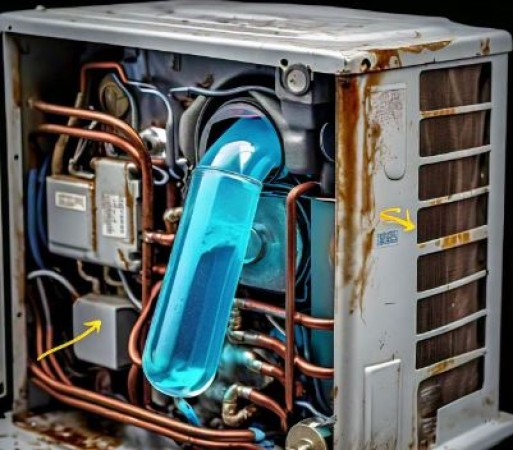
Air conditioners (ACs) rely heavily on coolant, also known as refrigerant, to function properly. Coolant plays a crucial role in absorbing heat from the room and transferring it outside, thereby providing cool air. If the coolant level is low or leaking, it can significantly impact the AC's cooling performance. In this article, we will explore the importance of coolant in ACs, its effects on cooling, and why regular checks are necessary.
Why Coolant is Essential for ACs
Coolant is a special liquid or gas that flows through the AC system, absorbing heat from the room and transferring it to the condenser, where it is released outside. If the coolant level is low, the AC struggles to absorb heat effectively, leading to reduced cooling performance. The right amount and condition of coolant ensure the AC's cooling capacity.
Consequences of Insufficient Coolant
Low coolant levels can cause the AC to work harder to cool the room, leading to increased energy consumption and higher electricity bills. Additionally, insufficient coolant can put extra pressure on the compressor, causing it to overheat or fail. Replacing or repairing the compressor can be costly.
Why Regular Coolant Checks are Necessary
Coolant leaks are a common issue that can develop over time. Regular checks can help identify leaks and address them promptly. Maintaining the optimal coolant level ensures effective cooling, faster cooling of the room, and enhanced comfort. Regular maintenance and checks can help:
- Maintain AC performance
- Reduce energy consumption
- Prevent costly repairs
In conclusion, coolant plays a vital role in AC cooling performance. Regular checks and maintenance ensure the optimal level and condition of coolant, preventing reduced cooling performance, increased energy consumption, and costly repairs. By prioritizing coolant checks, you can enjoy efficient cooling, reduced energy bills, and extended AC lifespan.